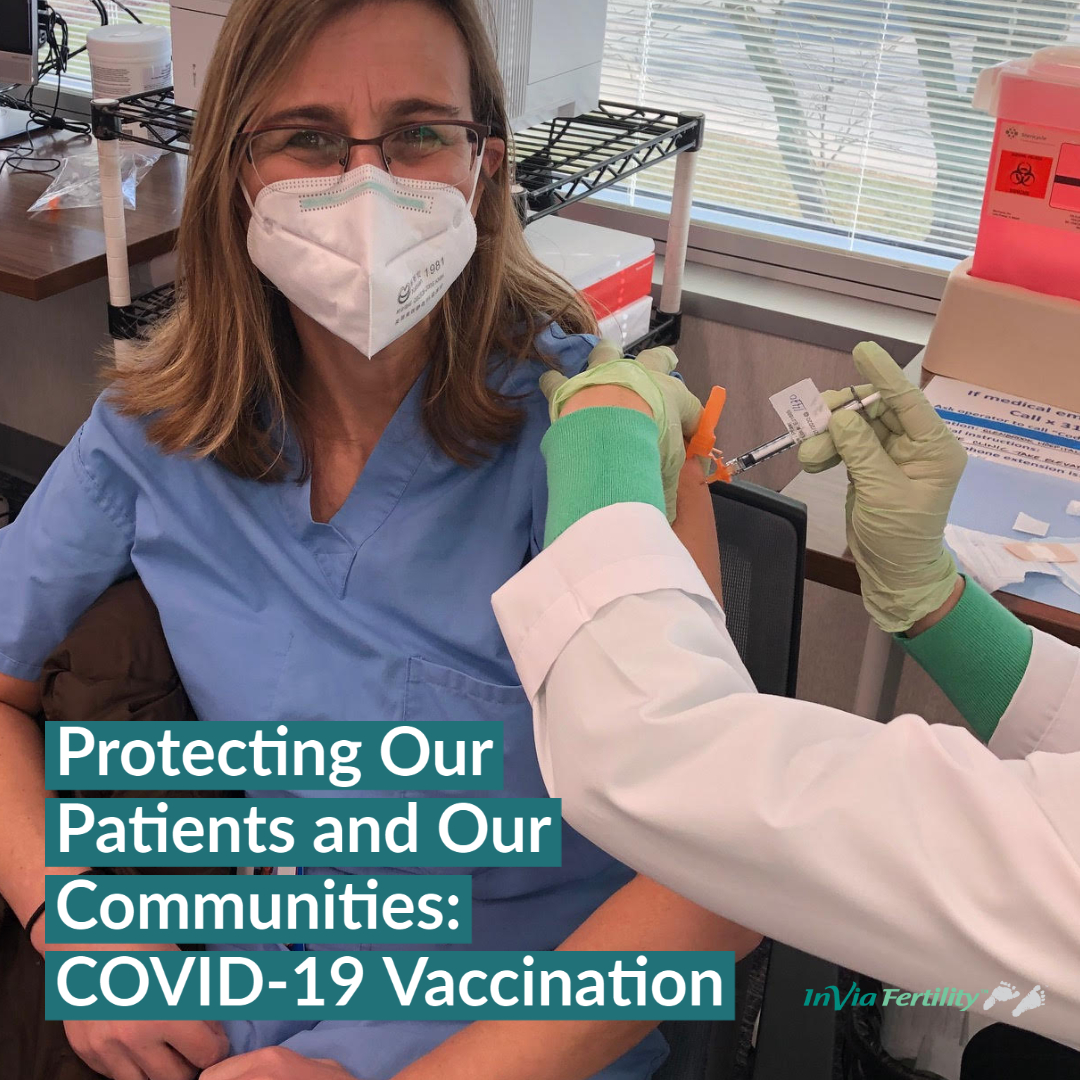We are experiencing a very high volume of calls and messages and ask for your patience. We will answer your portal messages within 48 hours.
We are experiencing a very high volume of calls and messages and ask for your patience. We will answer your portal messages within 48 hours.

This document is currently specific to the Pfizer-BioNTech mRNA vaccine (BNT162b2) as a 2-dose regimen given 3 weeks apart and for the Moderna vaccine as a 2-dose regimen given 4 weeks apart for the prevention of COVID-19 illness. As other vaccines become available, any specific differences in the FAQ responses will be included as appropriate.
Q: Should the vaccine be given to pregnant women or to women who may be planning a pregnancy?
A: The vaccine should not be withheld from pregnant individuals or those planning a pregnancy
Q: What considerations should a woman who is pregnant or contemplating pregnancy take into account when deciding whether to receive the vaccine?
A: 1) the level of activity of the virus in the community, which may change over time
2) life and work circumstances that affect COVID-19 exposure
3) the risk and potential severity of COVID-19 disease, including potential effects of the virus on the fetus and newborn
4) the potential efficacy of the vaccine (currently estimated at higher than 90%)
Q: Is the vaccine safe for pregnant women and their unborn fetuses?
A: There are no direct safety data specific to use in pregnancy, but there are also no data to indicate that the vaccines should not be used in pregnancy. Studies in pregnant women are planned. It is known that this type of vaccine (mRNA) does not contain any live virus, does not enter the cell nucleus and does not alter human DNA in vaccine recipients. As a result, mRNA vaccines cannot cause any genetic changes.
Q: Do pregnant women have a greater risk for serious infection and death if infected with COVID 19 compared to otherwise similar non-pregnant adults?
A: Available data suggest that symptomatic pregnant patients with COVID-19 are at increased risk of more severe illness compared with non-pregnant adults. However, the absolute risk for severe COVID-19 infection is low. Further, pregnant patients with comorbidities such as obesity and diabetes may be at an even higher risk of severe illness. Finally, Black and Hispanic individuals who are pregnant appear to have disproportionately higher prevalence of COVID-19 infection and death.
Q: What should a pregnant patient do if she develops a fever after immunization?
A: A pregnant patient who experiences fever following vaccination should take acetaminophen, as high fever has been associated with adverse pregnancy outcomes in general. Acetaminophen has been proven to be safe for use in pregnancy and does not appear to impact the response to COVID-19 vaccines.
Q: Should a patient receive a vaccination if she is planning on becoming pregnant?
A: Yes. Women contemplating pregnancy or actively attempting to become pregnant are strongly encouraged to receive vaccination.
Q: What if a patient becomes pregnant after the first dose of the COVID-19 vaccine is administered?
A: The second dose should be administered at the recommended interval (3 weeks later for the Pfizer vaccine and 4 weeks later for the Moderna vaccine).
Q: Is there any guidance on how long to wait after receiving the vaccine before I can become pregnant?
A: Currently there are no recommendations to intentionally delay pregnancy for any specific period of time after vaccination. Any delay would be a personal decision.
Q: If I have a high risk pregnancy for other reasons is it better for me to get the vaccine? What do we know about the vaccine in women who are pregnant and also have other medical problems?
A: Women with comorbidities like diabetes and hypertension may actually be at increased risk for severe consequences of COVID infection so should be offered vaccination if they otherwise meet criteria.
Q: Once I receive the vaccine, am I protected from COVID-19 immediately?
A: No. The currently available Pfizer/BioNTech vaccine as well as the Moderna vaccine require two doses. Maximal protection does not occur until at least one week following the second dose. Additionally, the protection is not 100%. While the vaccine protects against severe disease, it is not known if those receiving the vaccine could become infected with less severe disease and infect others. Mitigation strategies such as mask wearing, social distancing and hand washing continue to be of critical importance to prevent the spread of COVID-19 disease and should be continued whether or not a person received the vaccine.
For more information, please visit:
https://www.asrm.org/news-and-publications/covid-19/

Entire Website © 2003 - 2020
Karande and Associates d/b/a InVia
Fertility Specialists
